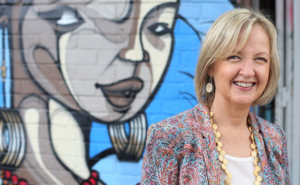The new work order
Developing entrepreneurial skills, digital literacy as well as creativity and an innovative mindset will be the key to surviving in the workplace of the future, according to social entrepreneur and author Jan Owen.
Speaking at the recent EduTech Conference in Sydney, Ms Owen, the CEO and founder of the Foundation for Young Australians, said there were three forces of change operating in the world of work.
“Automation is the first and happening every day. It’s not a question of if but of how quickly it will disrupt,” Ms Owen said.
“The second is globalisation; now one in ten jobs can be done anywhere. But there’s an opportunity to think about this and reframe it and ask how should we be connecting?” she said.
“The third is flexibility; one in three people are already working flexibly and there’s the risk of casualisation and insecurity in the labour market,” Ms Owen said.
She said one answer w3as to invest in new skills; things like digital literacy, bilingual skills, critical thinking or complex problem solving; and creativity and innovation.
“Young people are digital native with a stack of skills of huge value,” Ms Owen said.
She said the transformation of the workforce was manifest in changes already being seen in the way people work.
Ms Owen said workers would spend 30 per cent more time learning in the workplace, 100 per cent more time solving problems and 26 per cent more time in self-directed work.
“Middle management layers are already being stripped out of companies and organisations. The workforce will become more self-directed which will require a new skill set,” she said.
“We’ve done a substantial amount of research over the past three years about what’s driving the future of work and how young people can be best prepared.
“A 15-year-old today will have 17 jobs in 5 different industries. So that’s a really different world to their parents and their grandparents.
“There is still a lot we don’t know about the future. But what we do know is there is a set of enterprising skills required to navigate the new world of work which employers are asking for, and which are equally important if you’re going to run your own enterprise and create jobs.
“We expect a 15-year-old entering the workforce in 5 or 6 years will spend some time working for themselves, some time working for other people, some time with other people, and sometimes not working at all.
“In the future workforce seven out of 10 jobs will require a degree of digital literacy.
“In a highly globalised environment, bilingual skills are being sought after and transferable skills like problem-solving, critical thinking, creativity, innovation and communication skills are key long with an entrepreneurial mindset.
“It’s not that everyone has to be an entrepreneur, it’s more about being able to apply these skills across a range of different contexts in the new work order,” Ms Owen said.
She said being nimble would also be important in the workplace of the future.
“A lot of people would say we’re in the fourth industrial revolution working with the previous industrial revolution tools,” Ms Owen said.
“Interestingly we transform individually ahead of our institutions, so our institutions are lagging behind.
“Young people now can create change in the world, their own business, learn differently from being in a classroom. Everything’s up for grabs at the moment in terms of improving on the old ways of doing things.
“And our goal is to ensure that young people are equipped to step into the driver’s seat,” Ms Owen said.
She said research had also found a number of challenges I the workplace into the future.
“Basically there is not enough work experience, there are not enough jobs, there’s a lack of appropriate education and a lack of career management skills,” Ms Owen said.
“We in Australia spend $91 billion on education and training, but 75 per cent of employers report a lack of skilled workers and a third of young people are underemployed.
“In all this represents a $45 billion cost to the economy,” she said.
Ms Owen said part of the solution as to build entrepreneurial skills in education.
She cited her own organisation’s ‘$20 Boss’ program.
The $20 Boss program is free and $20 of real money to build a business and a tangible way of supporting students to learn, identify and talk about the skills they’re building.
“Through $20 Boss we flip the focus by challenging students to solve a real problem and help them better understand their relationship with money,” Ms Owen said.
Developed in consultation with students and educators, the $20 Boss program is the largest entrepreneurship program in Australia.
“Since 2015, we’ve had 50,000 students from 700 schools across Australia participate in the $20 Boss program,” Ms Owen said.












